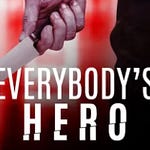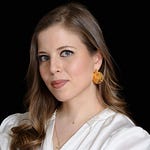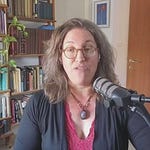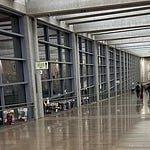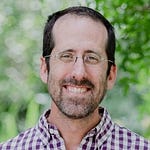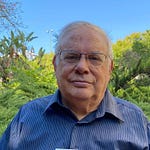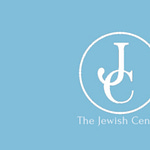A few months ago I had the pleasure of speaking with Danny Hakim, a passionate philanthropist who doesn’t just talk the talk, but actually walks the walk.
Danny moved to Israel more than 20 years ago and has since devoted his life to bettering Israeli society. Danny is the founder of Budo for Peace, a non-profit which uses sports to foster meaningful encounters between all members of Israeli society and the region and promote co-existence. Additionally, Danny is a board member of The Azrieli foundation, Maccabi World Union, the Alliance of Middle East peace, and Kids Kicking Cancer.
Danny’s latest venture is the first ever multi-ethnic sports camp for Israeli Jewish girls and Israeli Bedouin girls. The camp is called ONE TEAM and the girls have come from all over Israel, from Ra’anana to Dimona, from Modi’in to Abu Queidar.
In January 2022, Danny was awarded the Order of Australia Medal (OAM) for service to the international community. He lives in Ra'anana, Israel with his wife and two daughters.
The link above will take you to the full recording of our conversation; below is a transcript for those who prefer to read, available to subscribers to Israel from the Inside. And first, watch this video about his unique program.
Impossible Takes Longer, which addresses some of the above themes, will be published this April. It’s available now for pre-order on Amazon and Barnes & Noble.
We are living in a world in which good stories about relationships between different ethnic groups, whether it's in the United States or elsewhere, and certainly in Israel, are heartwarming. And also, I think, particularly necessary. And not that long ago, I read about a program that a friend of mine, Danny Hakim, put together, which is a sports camp for Israeli Jewish girls and Israeli Bedouin girls. It came with a video, which we're posting along with this podcast for you to see, of these girls doing all kinds of sports activities together. And these are two parts of Israeli society that normally have exactly zero intersection and Danny was able to create a camp to bring them all together.
It just struck me as a beautiful, moving story and I wanted to get him on and have him tell us the story of how this came to be. Danny Hakim made Aliyah to Israel 20 something years ago. He is a two-time World Karate Silver Medalist and holds a 7th degree black belt from Japan. So, he is a very serious athlete. He's the founder of Budo for Peace and chairman of the Sports for Social Change. He's a board member of the Azrieli Foundation, the Maccabi World Union, and Kids Kicking Cancer, among others. In 2017, he was inducted into the Australian Maccabi Hall of Fame. In 2019, he was the recipient of the Bonei Tzion Award for Culture, Art and Sport. And in January of 2022, he was awarded the Order of Australia Medal for Service to the international community. So exceedingly accomplished in multiple levels, in multiple ways. Danny, thank you so much for taking time. I know you're just back from the States, so you're busy, you're tired. I really appreciate you taking time to talk to us today. Tell us a little bit about yourself first, and then we'll get into the camp. How did you get into this whole idea of using sport as a way of building bridges?
Well, it started when I was really 13, actually, before when I was eight, I was in the Beitar Youth movement, and Jabotinsky would say that we have to defend ourselves. That was very important. And then go to Israel and do whatever you can do. That was when I was eight. And then at 13, for my Bar Mitzvah, my grandmother gave me a Bar Mitzvah present, which was a one-year subscription to a karate club. And so, I went to these karate classes and I was good. And then I ended up representing Australia in many world championships. And while I was on the Australian team, it dawned on me that not only was I proud representing Australia, but I was also proud representing the Jewish community. And on the team there were Turkish Australians and Iranian Australians. You know, it's multicultural like the United States. And we bonded, we were very close. And all of us were proud to represent both our communities and our country. And that bond of doing martial arts and representing our country made sense. So I asked myself why can't that model be adopted in Israel? So anyhow, I ended up staying in Japan nearly ten years and there I was training with Iranians from Iran and Lebanese from Lebanon. And we all got on very well because, first of all, we were not Japanese. And that was a bond in itself. So, when I moved to Israel, I thought maybe I could use this idea of the values of martial arts like respect, self-control, harmony within yourself and harmony with others to create a type of movement. And then I was looking around to find the Israeli Arabs and Palestinians and religious Jews with my poor Hebrew to bring them together. And that's how I started Budo for Peace. Budo is a Japanese term, and it means martial arts. So, it includes judo and aikido and karate, all the different martial arts. And I started with just the Japanese martial arts and then went to the Korean and Brazilian and all those that wanted to join because they believed in this concept of using martial arts as a platform of bringing kids together. And then about five years ago, I decided to open the scope of the idea of all sports and wellbeing for social change. And that's what I created, the Sports for Social Change Coalition. And now we have a coalition of 18 organizations. We have 30,000 kids in 380 locations. And it's a coalition of sports for social change. So, it's not just sports for peace, it's also sports for women empowerment, sports for disabilities. It's not sports for competition and medals and glory. It's how to use sports as a platform to make a better country and society. And that's what I'm doing now.
So, you said you have how many kids involved in this?
18 organizations, and collectively we have 30,000 kids.
What's the breakdown? I mean, how does it break down between Jewish, Arab, Haredi, Bedouin?
Roughly, we have over 50%- 60% are Jewish. And I'm not sure between Haredi and Arab, but we have over 30% Arab. And Haredi somewhere in between. And we're growing. So, the idea of this sports coalition, the idea is to have the collective impact model, where together we can learn what's best practice, how to do a better evaluation system. And that's the idea. And now the Israeli foundation has adopted this program and managing the coalition, so we have good funding and good people that can manage it for it to grow.
That's fabulous. I want to move our conversation a little bit to this fascinating camp that you put together, a sports camp for Israeli Jewish girls, teenagers, and for Bedouin girls. So, here's the question. These two communities don't intersect at all. Tell me a little bit about how somebody like Danny Hakim, an Australian Jewish guy who makes Aliyah, how does he go about finding people in the Bedouin community to trust you enough to give their daughters to this camp for about a week?
It started when I was looking for a Bedouin martial arts instructor 20 years ago. And I went to this club in Beer Sheva, a Jewish club. And I asked, do you have any Bedouins? And they said, yes. There's this one guy named Hazem, and he comes regularly, he's got his black belt. And I said, well, do you have his number? They said, no, we have no idea where he lives. But he comes on a Tuesday. So, I decided to meet him. And then I went to his unrecognized village, and he had his club, which was a converted garage. And even till this day, they're not on the grid, so their electricity is from his car battery. And I fell in love with them. And he's been with me for 18 years. This Hazem Abu Kwedar and I go regularly to their village, and they've been to my home in Australia, and it's a very personal relationship. And then a year ago, he and his wife Hanan decided to do a Wingate course to be madrichim.
Explain to our listeners what Wingate is.
It’s the national sports academy. And to be a qualified sports instructor, if it's aerobics or if it's karate, you have to do this course where you learn anatomy, physiology. And so Hanan did that, and she decided to open up in her backyard a studio for Bedouin mothers to be empowered. And I don't know if you know, but the Bedouin community, the mothers have three times the amount of diabetes than the national average. And it's horrific. And it's because they don't exercise, and they don't eat well. So, the intervention is quite easy if you educate them to exercise. So, this was a project, and I'm thinking, how can we do this? Because it would make a very big difference for the Israeli medical system. So, she started this studio, and she has 70 Bedouin mothers that go regularly. And that was the connection. So, it was like 18 years of getting to know them and going to their village. And in fact, last Sukkot they came to my home with their kids, and we sat together in the sukkah. It's a personal relationship and that's the thing. It's the people-to-people relationships where you can really make a difference and expand that, but it starts with the people to people.
To tell you about how I got the Bedouins, my idea was first through the coalition that there are many Arab and Jewish organizations, and they are doing sports for social change. So, I went to this one Arab organization, a Bedouin organization that 1000 kids doing sports. And I went to them and said do you think you could send a few girls to this camp? And the head of the organization said no way in the world. And I asked, why? And he said, “because it only takes one sheikh to say this is bad for Muslim girls and his business would be ruined”. And he recommended that I do it in the north and do it with boys, Arab boys in the north are much more progressive and that would work. And I said, but I want to do women empowerment. That's the idea. So, then I went to my friends Hazem and Hanan and I asked Hanan “do you think it's possible to have a few girls from the village to come on this ten-day camp?” And she looks at me and says, “how many do you want?” So, I said, well, we want to start with 25 Jewish and 25 Arab Bedouin”. And she said, “no problem.”
Well, how big is the village?
There about 3,000 people. That's all the same family. They all have the same last name. So, you can imagine when I do roll call when I go to the karate club, over 50% of the boys are Mohammed Abu Kwedar.
Just out of curiosity as an aside, it's not about the sports piece. Do they also marry within the same village?
A lot of them marry within the village, sometimes outside.
So that I'm sure also contributes to the complicated health situation down the road. Okay, but we're going to go back to the sport. So, she asks you how many young women you would like. You said you wanted 25. She said no problem.
And I knew that she would be a very good madricha or leader. And that was critical that she came with another member of the tribe that would look after the girls. So, it would be kosher. And I can tell you in my article, the quote that she said was she called the work is really spiritual work, bringing Bedouin girls, and these girls really have never been outside their village. So, that's how we were able to get the Bedouins. But it was hard to get Jewish. For a number of reasons. The first reason is that at camps in Israel are usually day camps a lot of kids don't go to sleep-away camp. This is a ten-day camp. This is significant. And I wanted it ten days because we know from research that ten days, it's the minimum to have real impact.
By the way, I think it's just important for our listeners to know that this whole notion of sleep-away camps, which is so common in America, is very uncommon in Israel. I mean, there are some of them, but it's not the norm. So, you're talking about it's not the norm for Jews and Bedouins to be together, but it's also not the norm for kids to go away to camp.
So, it's a complicated. There's an organization here called Summer Camps Israel that Shauna Goodman from Canada created, and that's their mandate is to try and make more and more summer camps, but minimum ten days. And so, I actually went with Shauna to the village, and she was very impressed that we could get Bedouin girls.
So how did you end up getting the Jewish girls?
I thought we would get them through the coalition because there's a lot of kids. But it was only like two months before summer, and it was too late for a lot of them. So, we just sent out personal notes to all the Jewish people that we knew that could be interested, and we ended up getting 18. But from everywhere and religious, from Jerusalem, from Tiberius, they came. And it was a real risk because this is our first year, it's ten days, and it was with Bedouins. And probably the hardest thing for them was that we didn't allow cell phones. And these days, kids that don't have their cell phones, it's very difficult for them. But it really helped create stronger bonds because they had to look at each other in the eye and talk.
Is that why you didn't have any cell phones? Because you wanted them focusing on each other?
That was the main issue. And that's part of the Summer Camps Israel policy as well. It's really important.
Yeah, by the way, just totally parenthetically. I mean, completely parenthetically. At Shalem College, where I work, we don't allow cell phones in the classroom. It can be turned off in your bag. And that's the extent of it. And it makes a huge difference. People are actually focused in an entirely different way. Every single one of us uses our phones when we shouldn't be using our phones, not because we're not interested. It's just become an addiction at this point. Now, the Jewish girls speak, I'm assuming, Hebrew, but not Arabic, right? And the Bedouin girls speak Arabic, but not Hebrew. So, they're all Israeli citizens, but they don't actually have a language in common.
We had leaders that spoke both languages. Some of the Bedouins, few of them spoke English. Same with the Jewish girls. Some of them [the Bedouin girls] spoke Hebrew as well.
How do Bedouin girls know English? That's actually fascinating.
They learned from YouTube. From TV. You know, one girl, was learning Korean, a Bedouin girl because she loves this Korean pop band. And that was a fantastic talking point between her and the Jewish girls. So, you're right, they have their cell phones, they do TikTok. They were doing TikTok together. And there's a lot of other common Generation X platforms that they can communicate with.
Now, in the video that you made of the camp, which, as I said before, we're posting along with this podcast, you can just see the girls completely connecting. And at a certain point in the video, it's impossible to tell who's Bedouin and who's Jewish. And they are completely blended together, which is fabulous. Share with us some of those moments that really stood out for you in this ten-day experience for these girls, where you kind of said, oh, wow, this is exactly what I want to be happening here. Or maybe perhaps the other that, wow, I did not expect this. What were some of the interesting cultural moments that stick out for you?
Well, we had we invited the Israel Lifesaving Federation to come and teach lifesaving skills in the water. And when you talk about life saving, it's common. People want to save each other, and people are scared of the water. So that was a lot of fun. And it was also a skill that they learned together. And I think that was really ice breaking because both the Jewish girls and the Bedouin girls had never done anything like this. And that was one. And the other thing is that we invited a woman named Shadya Zoabi. I don't know if you saw the film Shadya. It's a film that I produced in 2005 about this girl who becomes a world karate champion, and she is proud to be Israeli, but also proud to be Palestinian. Anyway, she came to the camp, we showed the film, and then she talked about it, and then she gave a lesson. And this is a real empowering women moment where they just saw her as a role model because she was an empowered mother.
Now, when she spoke to the girls, she's a Palestinian Israeli. Did she speak to them in Hebrew or in Arabic?
Both. She presented in Hebrew and also in Arabic.
I mean, I'm just thinking as a father, even though my kids are all long since grown up, the idea that my kids would go to something and this person who represented Israel with tremendous pride and was teaching them would be an Arab is just a fabulous, fabulous thing. I mean, it just sort of changes the presumption that it's the Jews teaching the Arabs. It's the Jews trying to bring the Arabs along. Here's this Arab woman who is exceedingly accomplished who's actually herself trying to inspire the Israeli Jewish kids.
Yeah, it's remarkable.
Okay, we'll actually post a link to the film itself when we post the podcast. I think that's really super important. What do we know about the follow up with these 50 or so girls who were together for ten days? They don't really speak the same language, but they figured out whether it was in Hebrew or English or in one case Korean how to talk with each other. What do we know about the follow up? Are they on social media together? Has there been continued contact? Did they kind of just fade back into their communities? And then what plans do you have, if any to kind of keep the relationship between these girls going?
Yes, yes, yes. The answer is yes. We are surprised ourselves. This young generation loves the social media. So, they are connecting some of them daily. Depends on how they connected at the time. But they are and we do have a follow up.
And how about the Orthodox? Any Haredi?
We didn’t have Haredi, but we had one Orthodox, but the next year we’ll have one member of the coalition is a Haredi organization that do capoeira and there are 1,000 kids in Bnei Barak and Jerusalem, they do capoeira and they're very open and they wanted to be part of the camp. There just wasn't enough time and permission. But that will happen. As long as it's girls without boys, it's fine.
Right. By the way, speaking of girls and boys, I was just curious when we watched the video, in the life saving part there are these men that are in the pool with all these young female teenagers. In the Jewish community, Haredi community that could actually be an issue. It wasn't an issue at all for the Bedouin girls?
It is the same issue. But because they were instructors, they weren't kids. They were all qualified instructors and when if it comes to instruction and instruction in life savings it made it workable.
So that's interesting. So, in that regard, the Bedouin community and the Israeli ultra-Orthodox community are somewhat similar in those norms about genders and all that kind of stuff. That's fascinating. So, you're saying the Bedouin girls, they're not on the electric grid which you've already pointed out to us. And you mentioned before a term that some of our listeners may not understand. You said it's an unrecognized village. So, I'll just go back and explain that the Israeli government has been trying, exceedingly unsuccessfully, to move Bedouins into what are called recognized villages that have been built. That are on the water grid, they're on the electric grid, they're on the sewage grid and all of that. The Bedouins are fairly adamantly not moving into them. And they have what are called unrecognized villages. They stay where they are. And the Israeli government, it's a whole complicated political thing which we won't get into now, but has not put them on the electric grid, on the water grid and so forth often. So, these are girls who are living in a village, you're saying, Danny, who are not on the electric grid, but they are all somehow finding ways of charging their cell phones overnight and staying.
Well, they're using solar. All of them are using solar now. And some of them are thinking, the irony is they are planning to sell their solar energy to the grid. Think of that. They're not on the grid, but they're going to provide energy for the grid. So, yes, it's all solar now.
And they have a WhatsApp group for all the girls, and some of them are writing in Hebrew and some of them are writing in Arabic? And then I guess if I'm an Israeli Jewish girl and I get a WhatsApp message in Arabic, I just copy and do Google Translate, figure out what it means and respond and paste it back in.
Yes, and one thing that we did to make the parents feel comfortable, they're sending off their girls ten days and without being in contact was that we had a WhatsApp group with the parents, and then we would post photos of the kids just within that group. And that created another level of communicating between parents. And I think that was so helpful. The parents got to be on the same page with each other also.
So, you were sending out photos in real time, like at the end of day one, at the end of day two, et cetera, et cetera. They could see what was happening, actually more or less in time with them.
And they would comment, which was lovely.
Yeah, that is great. Really interesting way of bringing the parents in. Also, what's the plan from here on?
So, we're having a follow up in December, on Christmas Day, by chance. When we were thinking where would be a good place we thought, first of all, back to the location of the camp at Kfar Silver, because they're comfortable with that. They know it, they have good memories. We thought of going to Wingate because it's sports, but the Bedouins insisted that they Jews come to their village. So that's what we're going to do. It's amazing. So, we're going to bring them to their village and the Bedouins are going to host them and it's really going to blow a lot of these girl’s minds. And we want some of the parents to come as well.
Where is the village relative to, let's say, Beer Sheva?
It’s between Beer Sheva and Dimona.
Okay, so it's not too crazy far. I mean, it's a couple of hours.
It's one of those villages that if you passed you wouldn’t set your feet in there because it looks so shanty.
Right. So, you're going to get them all together on Christmas Day, which is all actually very telling. It's not the Jewish holiday or the Bedouin holiday.
Yeah, it seems to be the most commonly requested day.
And then what's happening this summer?
Well even in Pesach in Passover, we're going to have an overnight camp as well for girls that want to be youth leaders. Madrichot in training. So, we're having a camp there and we will be seeing who would be good to be a youth leader for the summer camp and a reunion. So that's another follow up. We didn't want it to be a one-off summer camp. So, it's a whole new program in a way.
And then this summer you're going to repeat it?
Yes, we're going to have one camp. We're going to double the numbers. We have about 100 girls and there's also demand to do one in the north, which we are considering another camp at the same time.
And what about boys? They are half the population. What are we going to do with them?
Yes, there’s a plan to do that. Definitely, there’s no question that we need to do them. But at the moment we did the pilot with girls, and we want to expand that. And the idea of doing this is we were looking for a product that the coalition can do something together and that's where we came up with this camp. And we're also thinking of doing a one-year program, like a gap year.
Before we wrap up, I wanted to go back to this idea of the gap year program. So, you're talking about a program that would be yearlong between high school and well, army for the Israeli girls, the Jewish girls and high school and either some sort of college or work for the Bedouin girls. The idea is they would spend a year together.
Yes, the idea is they would study to do this Wingate course to be sports instructors and then they would volunteer in the coalition as part of the program.
Wow.
So that's where we're thinking. Yeah.
Well, it's really unbelievable, I have to say. First of all, it's not a sufficiently well-known story, what you're doing and how there is grassroots work between you and many others, by the way, between different kinds of ethnic groups, Jewish and Arab and many others. And in this day and age when some of us are so worried about the future of ethnic relations in Israel and elsewhere in the world, to hear about this kind of work is just so heartwarming. I mean, it really does give hope for the future. And you are a person who for years already has been looking around the bend to try to see what can be done to make this place better and warmer and more outreaching. And when I heard this story about the camp, I just knew it was something we had to hear more about and tell people about. I'm thrilled that we got a chance to learn about it from you. And Danny, I just want to thank you again, first of all, for your time today, but especially for just being who you are and for doing for Israel what you're doing. If we could clone you, we would because you're such an important contribution to the fabric of Israeli life here. So, thank you so much for what you do and thank you so much for telling us your story.
It's a pleasure. I really hope it can grow and that's the idea is to upscale it because only through really, people communication, looking at each other in the eye, seeing the window of the soul, will people start trusting each other. And it's, as you know, through politicians, it's not going to happen, but it's important from the ground up.
Correct. Politics does not usually breed trust. I think that's fair to say. And you're right, it's about trust. And what you're doing is really fostering that. It's making this country infinitely better. For who you are and what you do I can’t thank you enough and I look forward to seeing you in the future.
Thank you, Daniel. Pleasure.
Please note: due to the Passover holiday, when many people will be traveling and otherwise occupied, Israel from the Inside will not be posting columns or podcasts during the weeks of April 3rd or April 10th.
Music credits: Medieval poem by Rabbi Shlomo Ibn Gvirol. Melody and performance by Shaked Jehuda and Eyal Gesundheit. Production by Eyal Gesundheit. To view a video of their performance, see this YouTube:
Our twitter feed is here; feel free to join there, too.










